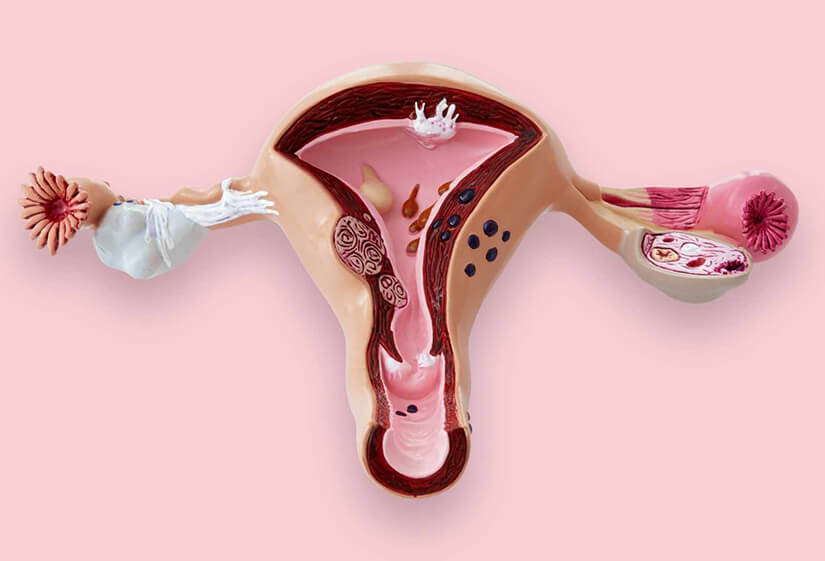Role of Pelvic and Vaginal Infection in Infertility
Infertility is a delicate and emotionally challenging issue that affects many couples today. Among the myriad factors that contribute to infertility, one often overlooked cause is pelvic infection. Pelvic infections, particularly vaginal infections, can profoundly impact a woman’s ability to conceive, potentially leading to severe complications.
Understanding the connection between these infections and infertility is crucial if you are seeking to start a family.
What Are Pelvic or Vaginal Infections?
Pelvic infections are infections that occur in the reproductive organs and often originate from vaginal infections. These infections can be caused by bacteria, viruses, or fungi. Common vaginal infections include bacterial vaginosis, yeast infections, and sexually transmitted infections (STIs) such as chlamydia and gonorrhoea. If you leave them untreated, these infections can spread to the uterus, fallopian tubes, and ovaries, leading to more severe conditions like pelvic inflammatory disease (PID).
Types of Vaginal Infections
- Bacterial Vaginosis (BV): Caused by an imbalance of naturally occurring bacterial flora in the vagina, BV is characterized by unusual vaginal discharge with a fishy odour. BV is the most common vaginal infection among women of reproductive age.
- Yeast Infections: These infections are caused by an overgrowth of Candida, a type of fungus, leading to itching, swelling, and a thick, white discharge. Yeast infections are common and can often be treated with over-the-counter medications.
- Sexually Transmitted Infections (STIs): Infections like chlamydia and gonorrhoea are transmitted through sexual contact and can cause significant damage if not treated promptly. These STIs can lead to serious reproductive health issues if they progress to PID.
- Tubercular Infection: Infection due to tubercular bacteria is the leading cause of pelvic Infection and inflammatory disease in Indian females. It affects the uterine lining, causing adhesions in the pelvis and tubal blockage.
How Do Pelvic Infections Affect Fertility?
When a vaginal infection progresses to the pelvic region, it can cause inflammation and scarring in the reproductive organs. This scarring can block the fallopian tubes, preventing the egg and sperm from meeting. Even if the tubes are not entirely blocked, inflammation can damage the delicate lining of the uterus, making it difficult for a fertilized egg to implant. Additionally, chronic pelvic infections can lead to adhesions, which are bands of scar tissue that cause organs to stick together, disrupting their normal function.

Mechanisms of Damage
- Blocked Fallopian Tubes: Inflammation and scarring can damage the lining of the tubes permanently leading to blocked tubes and hence making pregnancy difficult.
- Uterine Damage: The inflammation can damage the uterine lining, hindering implantation. A healthy uterine lining is essential for the successful implantation of a fertilized egg.
- Adhesions: Scar tissue can form adhesions, causing reproductive organs to stick together and function improperly. Adhesions can also cause chronic pelvic pain and other complications.
Recognizing the Symptoms
Early recognition of pelvic infections can prevent long-term damage to the reproductive organs. You must keep an eye out for these common symptoms:
- Unusual vaginal discharge
- Pelvic pain
- Painful urination
- Pain during intercourse
If you experience any of these symptoms, you must seek medical attention promptly. An IVF Centre in Delhi can offer diagnostic tests to determine the cause of the symptoms and provide appropriate treatment.
Diagnosis of Pelvic Infections
To diagnose these pelvic infections, your doctor will perform a combination of physical examinations, laboratory tests, and imaging studies. Some common diagnostic methods include:
- Pelvic Exam: A thorough pelvic examination can help identify signs of infection and inflammation.
- Laboratory Tests: Swabs from the vagina and cervix can be tested for bacteria, viruses, and fungi to pinpoint the cause of the infection.
- Ultrasound: An ultrasound can provide images of the reproductive organs, helping to identify any abnormalities or signs of PID.
- HSG: Hysterosalpingography: Tubal test can pick up blockage of the tubes and adhesions adjacent to it.
- Laparoscopy: In some cases, a laparoscopy might be necessary to directly visualize the reproductive organs and assess the extent of the infection and scarring.
Treatment and Prevention
Did you know that treating vaginal infections promptly can prevent them from progressing to more severe pelvic infections? Antibiotics are commonly prescribed to treat bacterial infections, while antifungal medications can treat yeast infections. In cases of STIs, both partners should be treated simultaneously to prevent reinfection. Sometimes the cause of infection is tubercular bacteria and then the treatment is 6 months of Anti Tubercular Treatment.
Preventative Measures
- Practice Safe Sex: Use condoms to reduce the risk of STIs. Regular STI screenings are also important for sexually active individuals.
- Maintain Good Hygiene: Regular cleaning and proper care can prevent infections. It’s important to avoid douching, as it can disrupt the natural balance of bacteria in the vagina.
What is douching, you may ask?
Douching is the process of cleaning the vagina with a mixture of water and other fluids, such as vinegar, baking soda, or iodine. This mixture is typically inserted into the vagina using a special bottle or nozzle. Douching is often marketed as a way to cleanse the vagina, eliminate odours, and prevent infections, but it can have several negative effects on vaginal health.
- Regular Check-Ups: Regular visits to an IVF specialist in Delhi can help detect and treat infections early. Early detection is key to preventing complications and preserving fertility.
Advanced Fertility Treatments
For those struggling with infertility due to pelvic infections, advanced fertility treatments such as in vitro fertilization (IVF) offer hope. IVF bypasses the fallopian tubes entirely, allowing the egg to be fertilized outside the body and then implanted directly into the uterus. An IVF Centre in Delhi can provide comprehensive care and tailored treatment plans to help achieve the dream of parenthood.
IUI Treatment
When cervical or vaginal infection seems to pose a problem in getting pregnant, using simple techniques that bypass the vagina would help. This is possible with IntraUterine insemination (IUI): where semen sample is washed and placed in the uterus for it to travel to the egg.
IVF Process
Where the damage due to pelvic infection has reached the tubes causing it to block IVF helps
Here is a quick overview of the IVF process for better understanding.
- Ovarian Stimulation: Hormones are administered to stimulate the ovaries to produce multiple eggs. This increases the chances of retrieving healthy eggs for fertilization.
- Egg Retrieval: Eggs are collected from the ovaries through a minor surgical procedure, which is typically performed under sedation.
- Fertilization: Eggs are fertilized with sperm in a lab. This can be done using conventional insemination or intracytoplasmic sperm injection (ICSI), where a single sperm is injected directly into an egg.
- Embryo Transfer: Fertilized embryos are implanted into the uterus. This relatively simple procedure is usually performed a few days after fertilization.
Success Rates and Considerations
The success rates of IVF vary depending on several factors, including the woman’s age, the quality of the eggs and sperm, and the specific cause of infertility. Generally, younger women have higher success rates. It is also important to consider the emotional and financial aspects of IVF, as the process can be both demanding and expensive.

The Psychological Impact of Infertility
Dealing with infertility, be it for any reason, can be a highly stressful and emotional experience. It is important to acknowledge and address the psychological impact of infertility, which can include feelings of frustration, sadness, and anxiety. Couples may benefit from counselling and support groups to help them cope with the emotional challenges of infertility.
Support and Resources
Seeking support from friends, family, and professionals can make a significant difference in managing the stress associated with infertility. Many IVF centres in Delhi offer counselling services and support groups to help couples navigate their fertility journey.
Lifestyle Changes to Improve Fertility
Making certain lifestyle changes can improve fertility and overall reproductive health. Some recommendations include:
- Healthy Diet: Eating a balanced diet rich in fruits, vegetables, and whole grains can improve reproductive health. Avoiding excessive caffeine and alcohol is also beneficial.
- Regular Exercise: Moderate exercise can help maintain a healthy weight and reduce stress. However, excessive exercise can negatively impact fertility.
- Avoiding Smoking: Smoking has been linked to reduced fertility in both men and women. Quitting smoking can significantly improve the chances of conception.
Understanding the role of pelvic or vaginal infections in infertility enables individuals to take proactive steps to protect their reproductive health and seek appropriate treatments. With the right care and support, overcoming infertility is possible. By addressing these infections early and seeking advanced fertility treatments, many couples can achieve their dream of starting a family.
Next Steps to Take
If you are experiencing symptoms of pelvic infections or struggling with infertility, you need to get professional medical help. Dr. Rhythm Gupta, a renowned IVF specialist in Delhi, offers expert care for gynaecological issues, including vaginal infections and advanced fertility treatments to help on the journey to parenthood.
Don’t let pelvic infections stand in the way of your dreams. Contact Dr. Rhythm Gupta today to schedule a consultation and take the first step towards a brighter future.












